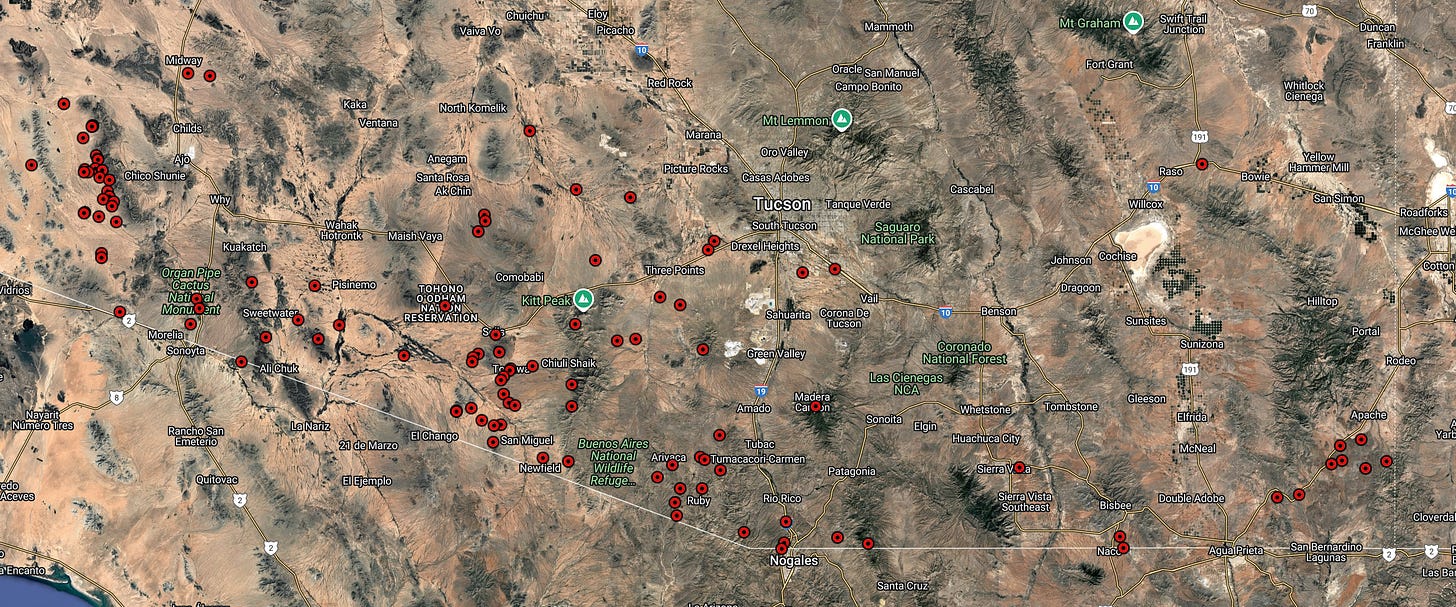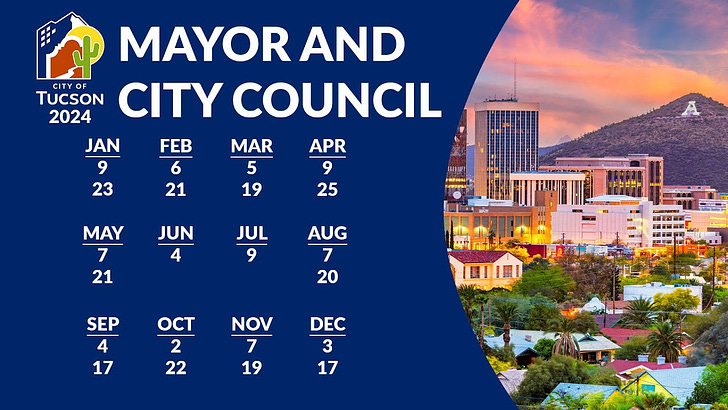City holds off on homeless ordinance
Officials were set to ban encampments in washes ... Item pulled before council meeting ... Hookah rules incoming.
For the first time in a long time, the Tucson City Council can make a big legal move on homelessness.
Like every other city that's struggling to deal with a years-long rise in homelessness, the council is trying to figure out what to do now that the U.S. Supreme Court said local governments can crack down on people sleeping in public spaces.
The council was eyeing an ordinance this week that would make it a misdemeanor to sleep in washes. But they pulled the item from the agenda of Wednesday’s meeting, saying it was at the request of staff.
The ordinance has been a long time coming. The council told staff to draft the ordinance at their February 21 meeting, but they waited to see what the U.S. Supreme Court would do with a case out of Grants Pass, Oregon.
In the Grants Pass case, the Supreme Court ruled in June that cities had the right to pass ordinances that penalized people for sleeping in public places, nixing the notion that it would be cruel and unusual punishment, as the 9th Circuit Court of Appeals had determined in 2022.
Even though the item was pulled from Wednesday’s agenda, the council did take some heat, including from a community organizer who spoke at call to the public about “criminalizing unhoused people for having encampments in washes.”
“It’s not humane. You aren’t offering real solutions for the community. And even though it’s off the agenda, we are still going to come here, we’re still going to show up and tell you that this is not okay,” she said.
“This is not representative of what we want. We want real solutions. We want housing services for a community, not promises and then you telling them that, ‘Oh, we don’t have enough money for that. It’s going to law enforcement, it’s going to helicopters, it’s going to planes.’”
The council also heard from a woman who pleaded with the council to deal with “rampant” substance abuse in public spaces, including near schools and churches.
“The primary concern isn’t the homeless population, but rather mental health and substance abuse,” she said. “Existing programs are often underutilized due to lack of participation. Implementing stricter legislation to ensure community reintegration through mandatory mental health treatments and transitional housing could be beneficial.”
Back in February, as the council kicked off the discussion of the encampment ordinance, then-City Manager Michael Ortega said the city hit a roadblock when they tried to move people out of washes the previous monsoon season. Officials didn’t really have clear authority to do it, other than as an emergency measure.
They also started thinking about the fact that Tucson often sees floods in October or February, not just during monsoon season. So they wanted a tool they could use year-round, Ortega said.
City Attorney Mike Rankin said the ordinance would give officials a tool that specifically addresses the problem, rather than lean on a combination of state laws prohibiting trespassing and local ordinances that ban squatting on public property.
Officials would offer help to people in washes, per the city’s homeless protocol, before taking any legal action against them, Rankin said.
Council member Paul Cunningham said the Grants Pass case was a “big piece of this discussion,” and urged Rankin to keep track of the case and advise the council.
Vice Mayor Kevin Dahl called the proposed ordinance “another tool in our toolbox,” but “we don’t want to hit everybody with our wrench.”
Ortega noted the city doesn’t have the resources to go out to every wash and enforce the ordinance “to some incredible level.”
Council member Lane Santa Cruz asked whether the ordinance would apply to the river, not just washes. Rankin said the state trespassing law would still apply in the Santa Cruz River. Ortega pointed out that most of the local rivers are Pima County property.
Going forward, Mayor Regina Romero suggested they be very explicit about how the city usually manages the homeless protocol, including “robust public education.”
The discussion in February mirrored the argument City Manager Tim Thomure laid out in a memo for Wednesday's meeting.
He described the ordinance as a safety measure to protect people from being swept away in floods, as well as protect the first responders who answer calls in washes. The ordinance also would protect the “delicate balance of riparian ecosystems.”
For now, the council hasn’t said what they plan to do next. But Rankin emphasized back in February that the “fundamental principle” for how the city develops ordinances related to homelessness is that “homelessness is not a crime.”
“We will always structure our ordinances that way. We will always structure our enforcement protocol that way,” Rankin said.
Hookah rules: As the city tries to quell violence around hookah lounges, the Tucson City Council took the next step toward requiring those lounges limit their hours of operation, the Arizona Daily Star’s Charles Borla reports. They told staff to draft language for an ordinance, which also could raise the legal age to be allowed in a hookah lounge from 18 to 21 years old and require security cameras.
Shut down, for now: Tucson officials temporarily shut down Santa Rita Park and cleared out homeless encampments on Wednesday, as part of a days-long cleanup, KVOA’s Chorus Nylander reports. The park will re-open Friday after city crews clean up trash and remove shopping carts, mattresses, and tents. Officials said they gave prior notice and offered housing options to people sleeping in the park, but nobody accepted the offer.
Going after the big guys: The Town of Marana sued the federal government over “forever chemicals” at Davis-Monthan, Capitol Media Services’ Howard Fischer reports. Town officials say PFAs contaminated the town’s water supply and, in what might be a first among the many lawsuits in Arizona related to PFAs, they want compensation from the Air Force, not just the companies that made the chemicals.
Tragedy in the desert: The Washington Post’s Joshua Partlow traces the journey of a Mexican man who disappeared while trying to cross the border in Southern Arizona, and the volunteer aid workers who went searching for him in the desert.
“I’m an avid hiker,” said Ernesto Macias, a 27-year-old emergency room nurse who recognized his own early symptoms of heat stroke on one trip. “This is a whole different beast.”

Another wrinkle: The judge in charge of the criminal speeding case against state Sen. Justine Wadsack recused herself and the trial will be delayed, the Arizona Republic’s Sarah Lapidus reports. Wadsack pleaded not guilty to criminal speeding and failure to produce insurance after she was pulled over going 71 mph on Speedway in March. Judge Geraldine Hale did not give a reason for her recusal.
Heading to Douglas: Vice President Kamala Harris will make a campaign stop in Douglas on Friday, the Herald/Review reports. Harris announced a trip to Arizona’s border with Mexico earlier this week, but didn’t say exactly where she was headed. The Harris campaign didn’t specify where in Douglas she would visit. The Herald/Review pointed out that the visit will coincide with the 100th Cochise County Fair at the Douglas Fairgrounds.
105: The high temperature in Tucson on Wednesday, which marked the latest date in a year that reached 105 degrees.






